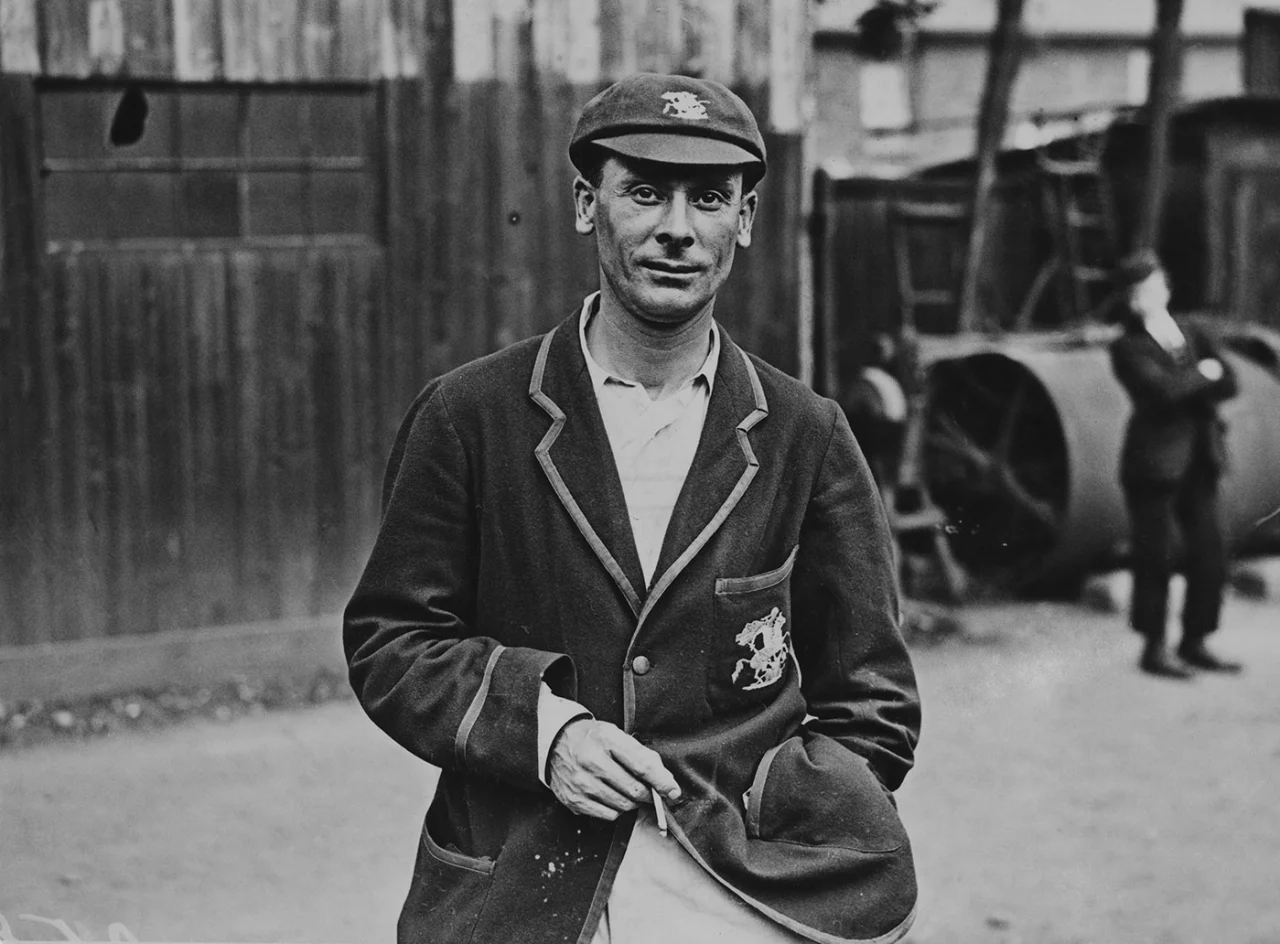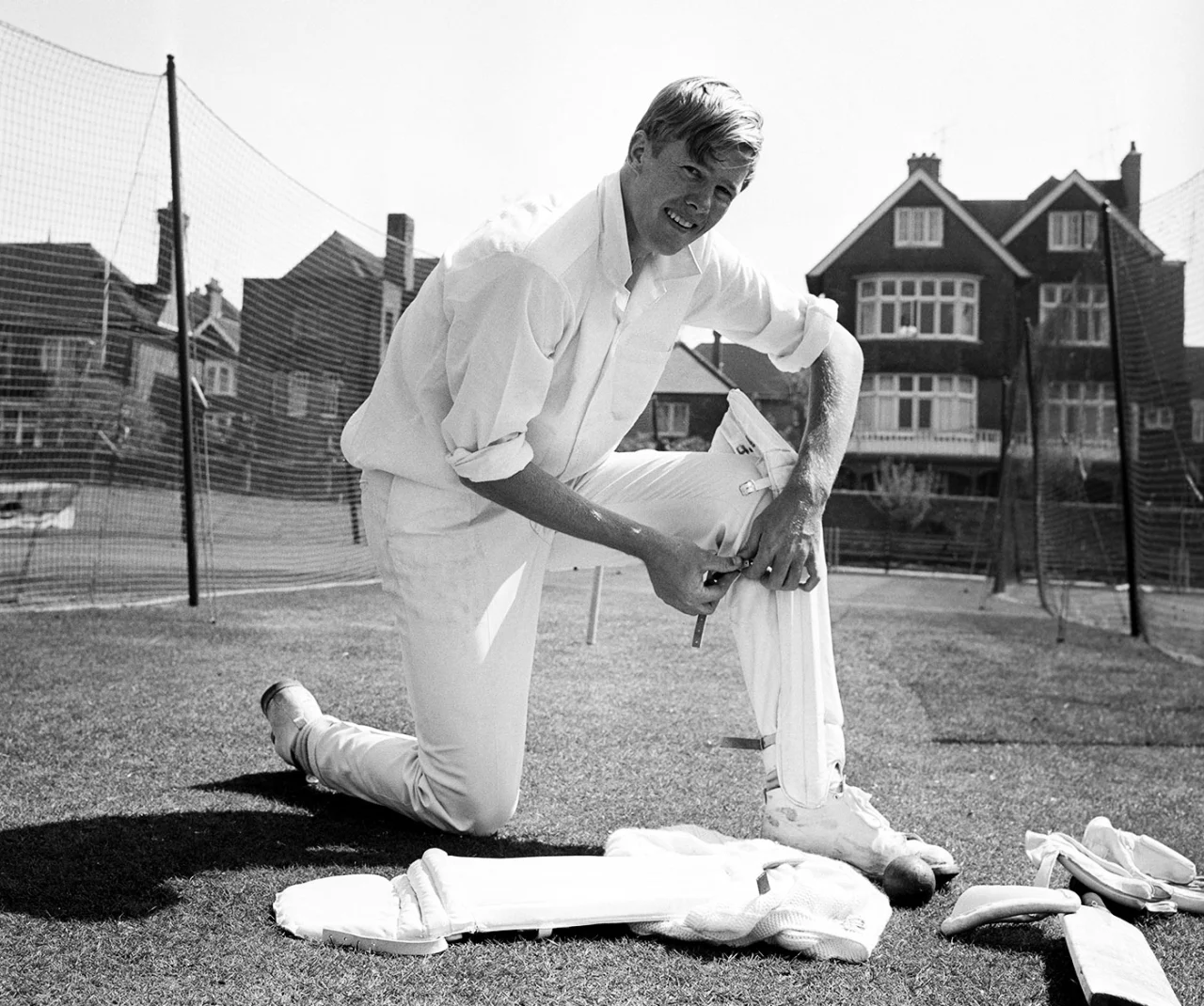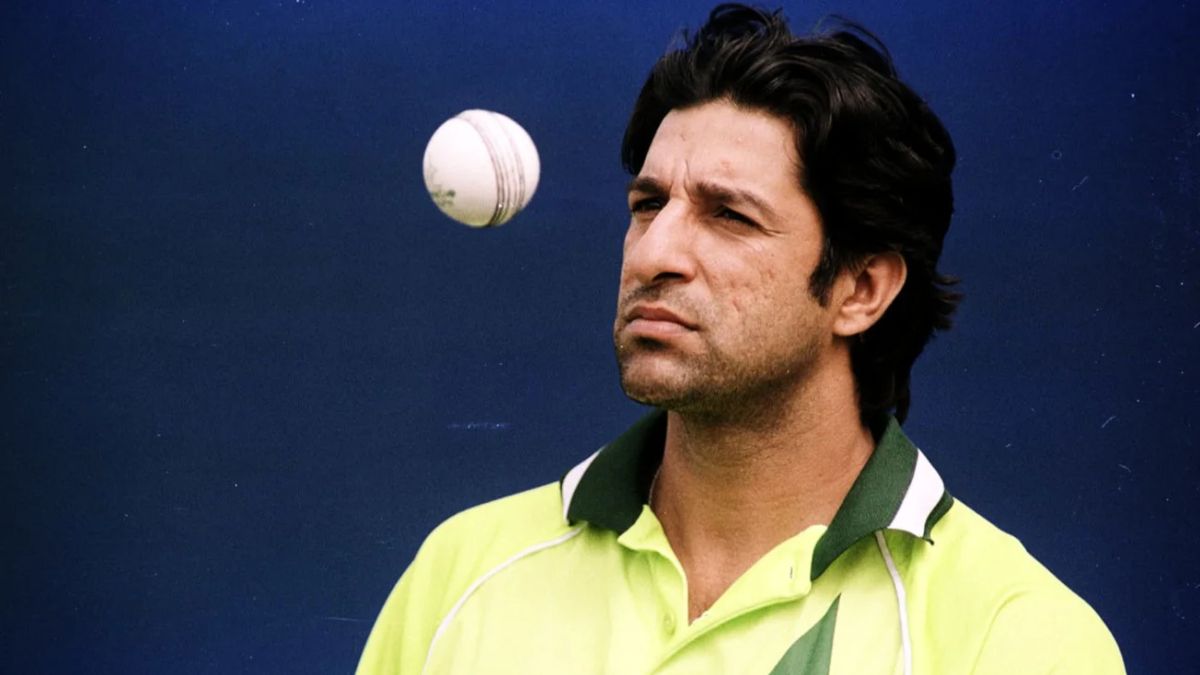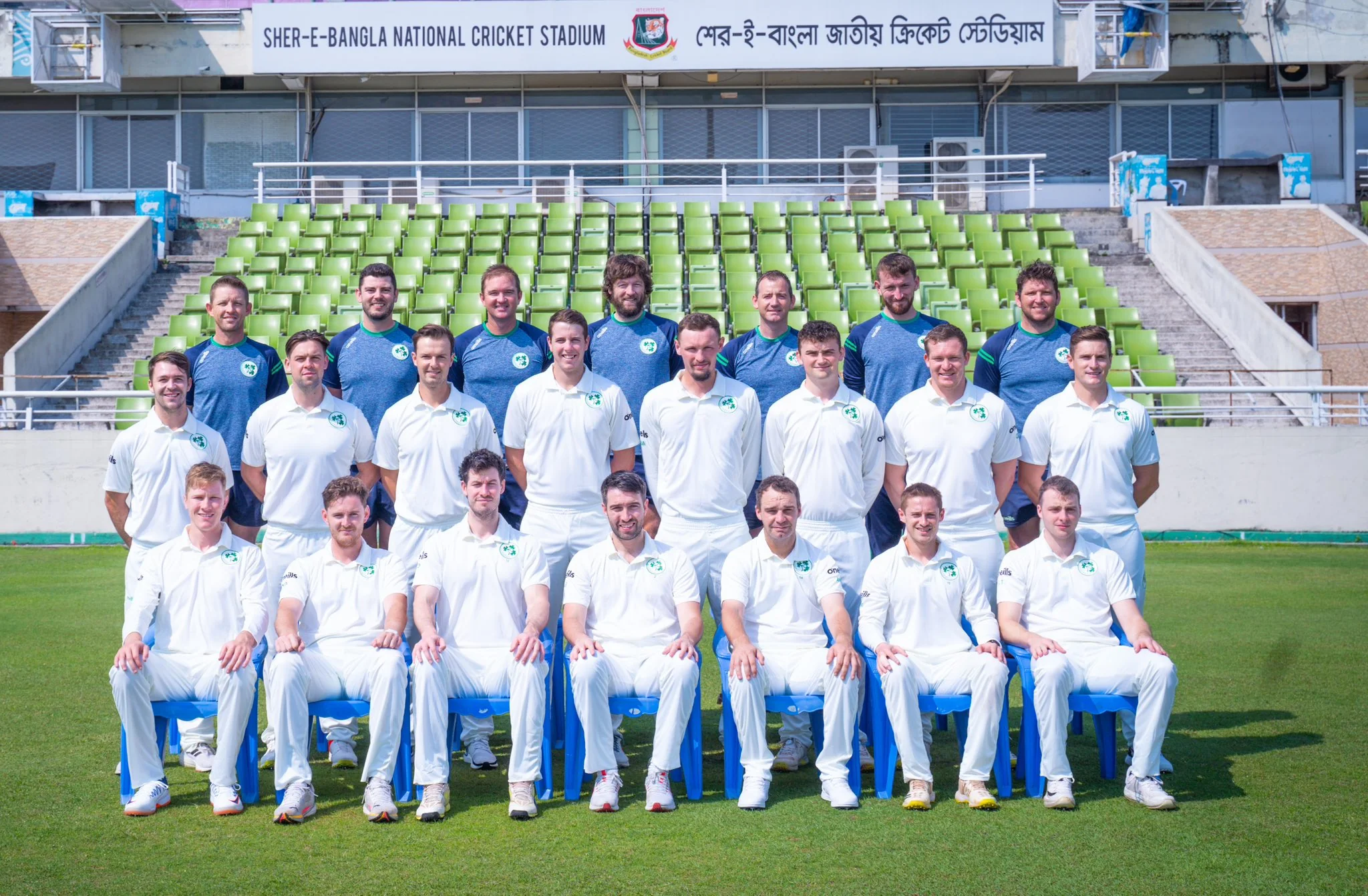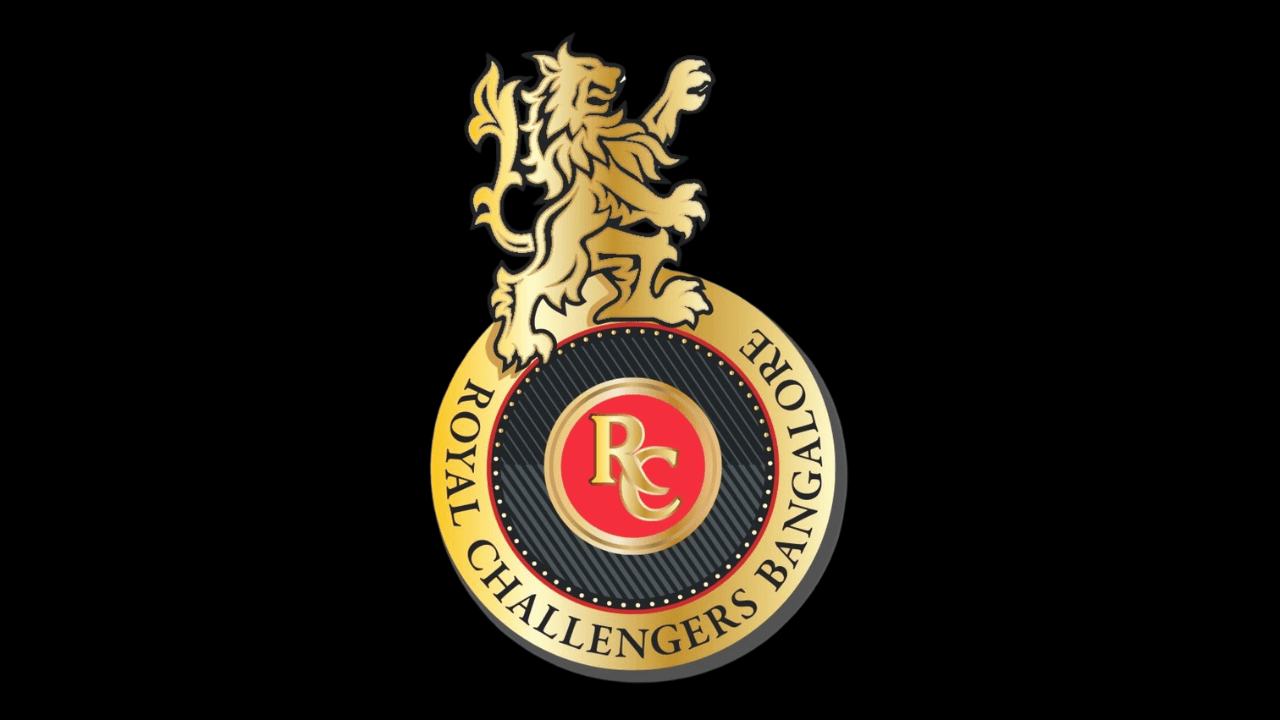Also known as ‘the Master’ for his remarkable performances as a leading run-scorer and century maker, Jack Hobbs is undeniably the greatest batsman in the entire history of cricket.
In this article, 7cric will focus to break down each detail of Hobbs’ cricket career, records, and achievement.
Summary and Key Takeaways
Key Takeaways of Jack Hobbs' Biography, Career, and Statistics
1. Early Life and Background:
- Jack Hobbs was born in Cambridge, England, in 1882, where his father's connection to cricket grounds played a crucial role in nurturing his interest in the sport.
- Despite financial constraints, Hobbs' talent and passion for cricket led him to excel in local teams and catch the attention of the cricketing community.
2. Early Cricketing Journey:
- Hobbs' early cricketing experiences in Cambridge and with local teams showcased his potential as a batsman and laid the foundation for his future career.
- His father's occupation and family support were significant influences that contributed to his development as a cricketer.
3. Career Achievements:
- Hobbs' prolific career in domestic cricket saw him score over 61,000 runs with 197 centuries, setting records that stood for decades.
- In international cricket, he represented England in 61 Test matches, scoring over 5,400 runs with 15 centuries and an impressive average of 56.94.
4. Impact and Influence:
- Hobbs' impact extended beyond his batting prowess; he was known for inspiring teammates and forming legendary partnerships, notably with Herbert Sutcliffe in the Ashes series.
- His influence in the dressing room and his ability to build innings steadily were key contributions to his teams' successes.
5. Awards and Recognitions:
- Hobbs received numerous accolades, including being knighted for his services to cricket, induction into the ICC Cricket Hall of Fame, and recognition as one of Wisden's Cricketers of the Year.
6. Statistical Analysis:
- In Test cricket, Hobbs' remarkable average of 56.94, along with 15 centuries and 28 half-centuries, reflects his consistency and skill as an opening batsman.
- His first-class cricket statistics, including over 61,000 runs and 197 centuries, underline his dominance and longevity in the sport.
7. Batting Technique and Role:
- Hobbs' batting technique, characterized by a solid defense and a wide range of shots, made him a formidable opener who could play both off the front and back foot with ease.
- As an opening batsman, his role was crucial in providing solid starts and laying a strong foundation for his team's innings.
Legacy and Final Remarks:
- Jack Hobbs' legacy as one of cricket's greatest batsmen is cemented not only in the records he set but also in the example he set for future generations of cricketers.
- His enduring influence on the game and his contributions to England's cricketing history make him an iconic figure in the sport's folklore.
Early Life and Background of Jack Hobbs
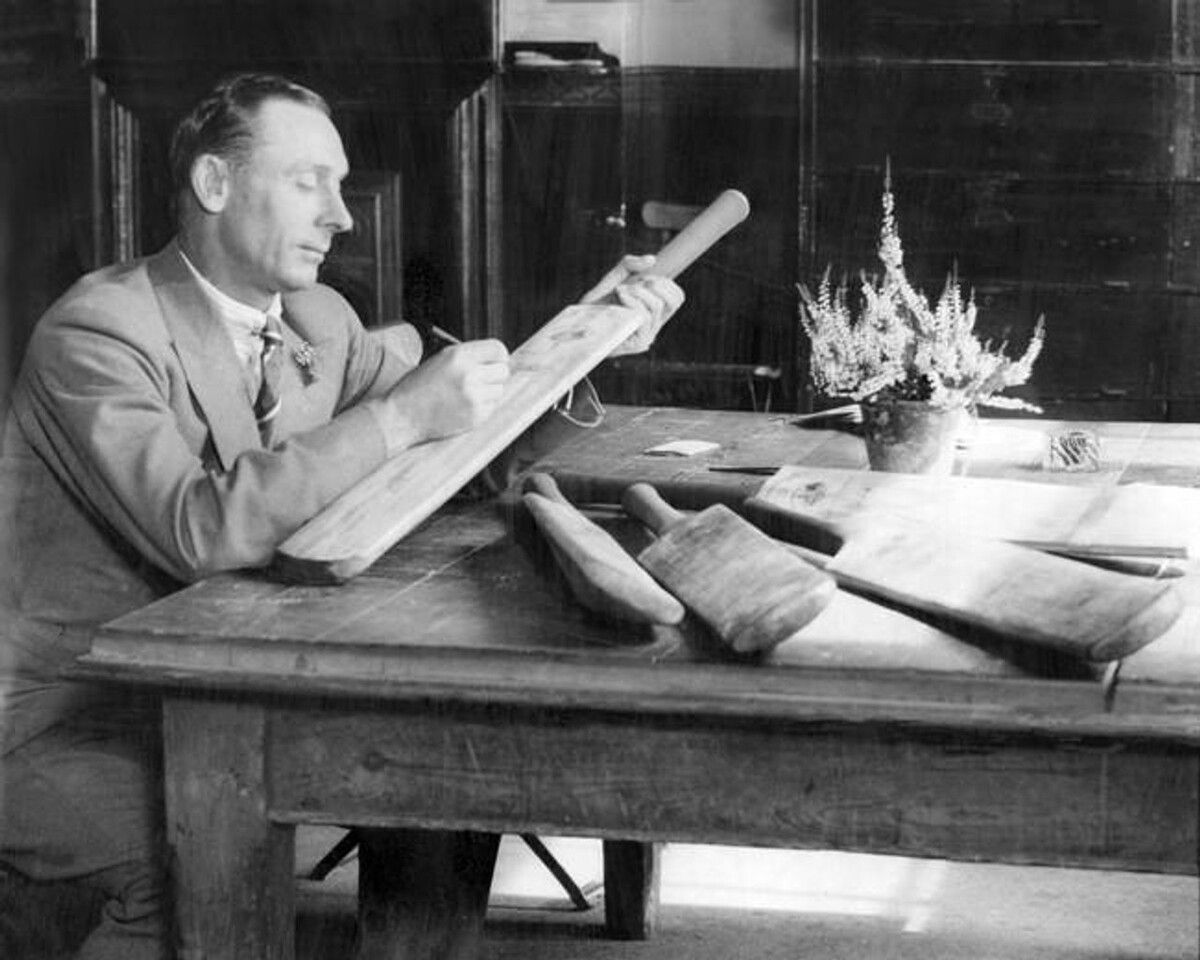
Jack Hobbs was born on December 16, 1882, in Cambridge, England. He was the eldest of 12 children in his family.
His father, John Cooper Hobbs, was a groundsman at Jesus College, Cambridge, which allowed young Jack to grow up in an environment closely connected to cricket.
His mother’s name was Florence Amelia Hobbs. The cricketing atmosphere in his early environment played a significant role in nurturing his interest in the sport.
Early Education and Initial Cricket Involvement
Hobbs received his early education at St Matthew’s School in Cambridge. While his academic pursuits were relatively ordinary, his cricketing talent became apparent at a young age.
He demonstrated a natural ability and enthusiasm for cricket, playing informally and honing his skills in the college grounds where his father worked.
His early experiences with cricket at school and in local games laid the foundation for his future in the sport.
Early Cricketing Experiences
Jack Hobbs’s cricketing journey began in earnest when he played for local teams in Cambridge, including the Cambridgeshire County team.
His performances in these early games showcased his potential as a batsman and his skills caught the attention of the broader cricketing community.
Despite the financial constraints of his family, his talent secured him opportunities to play at higher levels.
Significant Events and Influences
One significant influence in Hobbs’s early life was his father’s occupation, which allowed him regular access to cricket grounds and the opportunity to practice extensively.
Furthermore, the support of his family, despite their limited means, was crucial in enabling him to pursue his passion for cricket.
His father’s role at Jesus College not only provided Hobbs with a playground but also exposed him to the game’s nuances and the discipline required to succeed.
Early Achievements and Challenges
Hobbs’s early cricketing career was marked by both achievements and challenges. He scored his first century for Cambridgeshire in 1900, which was a significant milestone that marked his arrival on the competitive cricket scene.
However, he also faced the challenge of balancing his sporting aspirations with the need to contribute financially to his family.
Before becoming a professional cricketer, he worked as an apprentice to a carpenter, which limited his time for cricket.
Career Achievements of Jack Hobbs
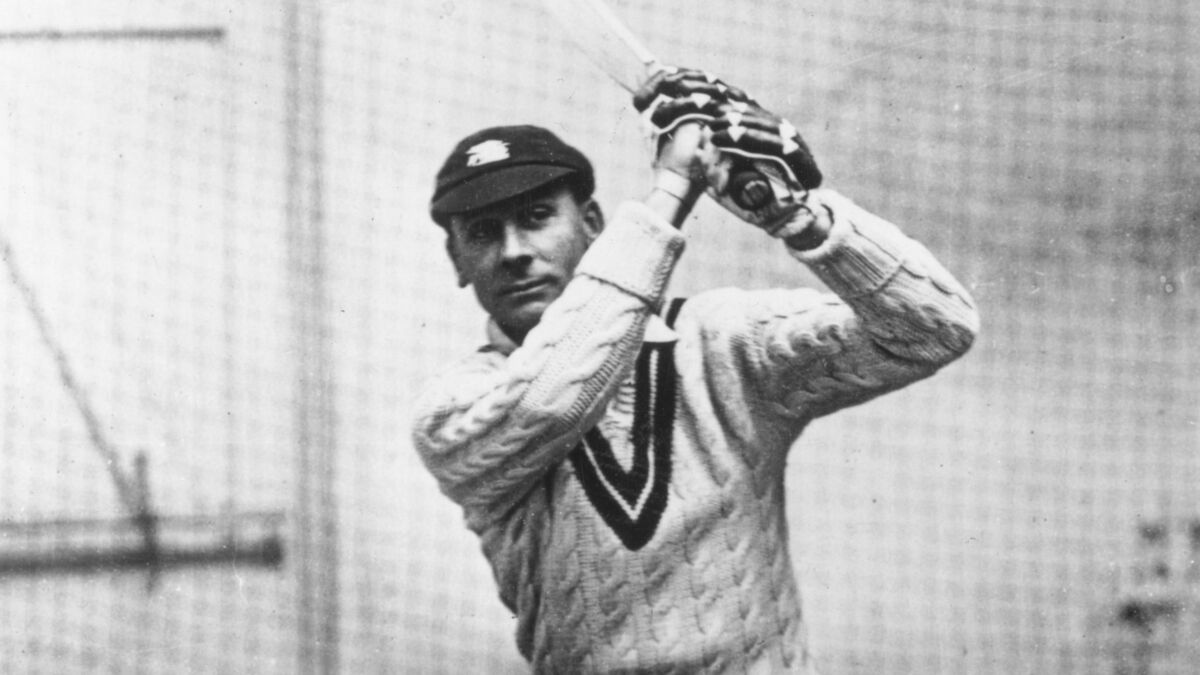
Jack Hobbs, known as “The Master”, was one of cricket’s most prolific batsmen, whose career spanned from the early 20th century.
His achievements in cricket are monumental, both in domestic and international arenas.
Domestic Cricket Achievements
Hobbs played primarily for Surrey County Cricket Club in domestic cricket. Over his career, he amassed 61,760 runs in first-class cricket, which was a record at the time of his retirement.
He scored 197 centuries in first-class matches, a record that stood until it was broken by Sachin Tendulkar in 2010.
Key Milestones and Records
Hobbs holds the record for the most runs in first-class cricket, with a total of 61,760. He scored 197 centuries in first-class cricket, making him one of the game’s most prolific century-makers.
International Cricket Achievements
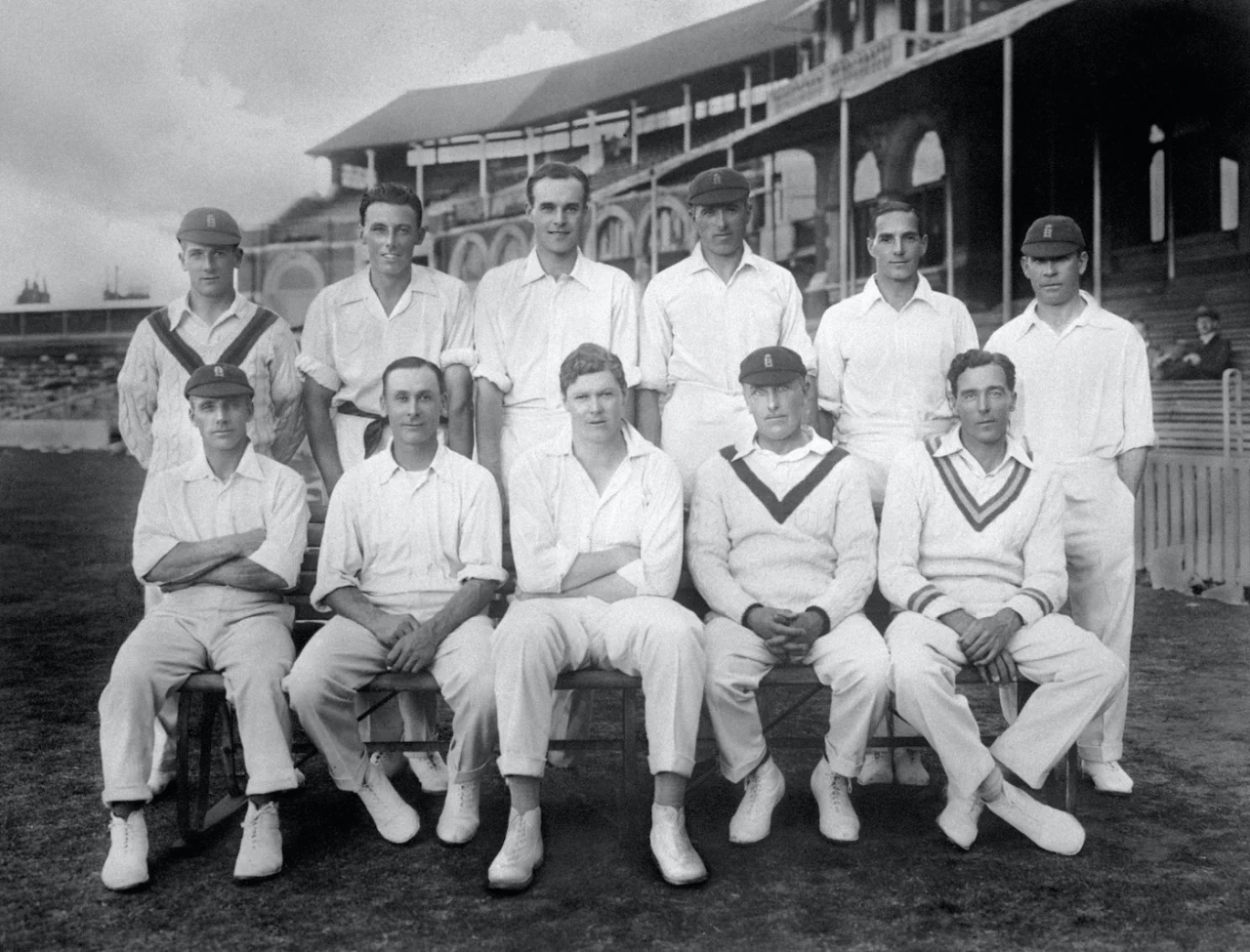
In international cricket, Hobbs represented England, making his debut in 1908 against Australia.
He played 61 Test matches for England, scoring 5,410 runs at an average of 56.94, which includes 15 centuries and 28 half-centuries.
Major Innings and Series
Hobbs was instrumental in England’s success in the Ashes series against Australia. He participated in multiple Ashes tours, contributing significantly with the bat in many series. His highest Test score of 211 was made against South Africa in 1924.
Awards and Recognitions
Jack Hobbs received numerous accolades throughout and after his career:
- He was knighted in 1953 for his services to cricket.
- Inducted into the ICC Cricket Hall of Fame.
- The Wisden Cricketers’ Almanack named him one of their Cricketers of the Year in 1909.
Impact on Teams and Key Performances
Hobbs’s contributions were not just limited to his batting skills but also included his influence in the dressing room and his ability to inspire teammates.
His partnership with Herbert Sutcliffe is one of the most famed in cricket history, especially in the context of the Ashes series.
Statistical Analysis of Jack Hobbs’s Cricketing Career
Jack Hobbs’s cricketing career is celebrated for its longevity and productivity, especially in the Test and first-class cricket formats.
Known primarily as an opening batsman, his technique and consistency set him apart.
1. Test Cricket Statistics
- Total Runs and Average: Hobbs scored 5,410 Test runs at an average of 56.94, a remarkable figure for his era.
- Highest Score: His highest score in Test cricket was 211, made against South Africa.
- Centuries and Half-Centuries: He scored 15 centuries and 28 half-centuries in Test matches.
- Strike Rate: While strike rates were not officially recorded during his era, Hobbs was known for his ability to build innings steadily and accelerate when needed.
2. First-Class Cricket Statistics
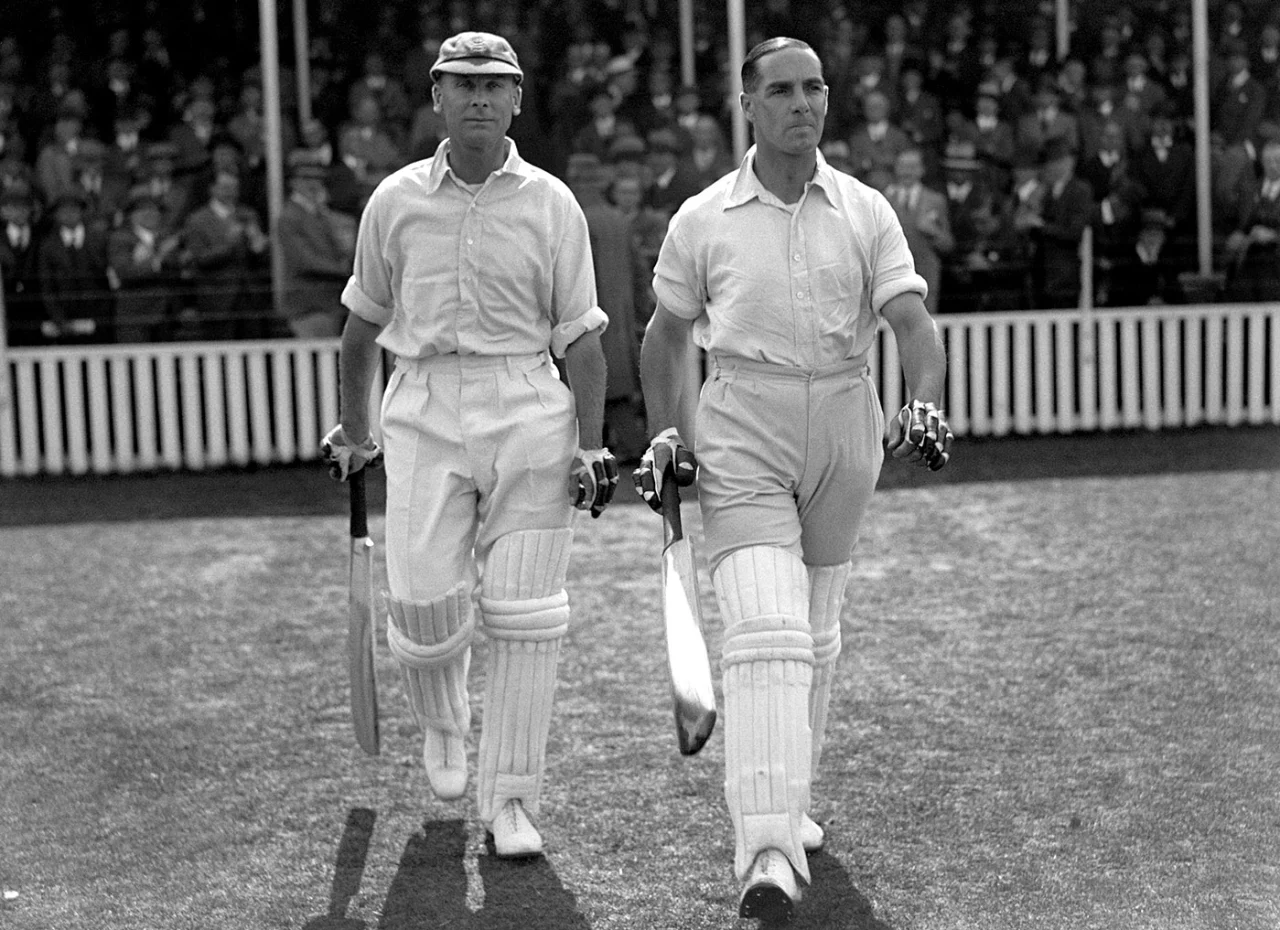
- Total Runs and Average: In first-class cricket, Hobbs amassed 61,760 runs at an average of 50.70.
- Highest Score: His highest score in first-class cricket was 316 not out.
- Centuries: Hobbs recorded 197 centuries in first-class cricket, showing his ability to play long and impactful innings.
3. One Day Internationals (ODIs) and Twenty20 (T20s)
Jack Hobbs played before the introduction of ODI and T20 formats, so he does not have statistics in these formats.
4. Bowling Statistics
Hobbs was primarily known for his batting, but he occasionally bowled in first-class cricket. His bowling statistics are not as prominent as his batting, indicating his role was primarily as a batsman.
5. Role and Position in the Team
As an opening batsman, Hobbs’s role was to provide solid starts and build substantial innings. His technique and concentration were his greatest assets, allowing him to bat for long periods and lay a strong foundation for his team.
6. Batting Technique
Hobbs was known for his impeccable technique, characterized by a sound defense and the ability to play both off the front and back foot with equal ease. He had a wide range of shots and was particularly adept at cutting and driving.
Final Words of Jack Hobbs’ Biography, Career, and Statistics
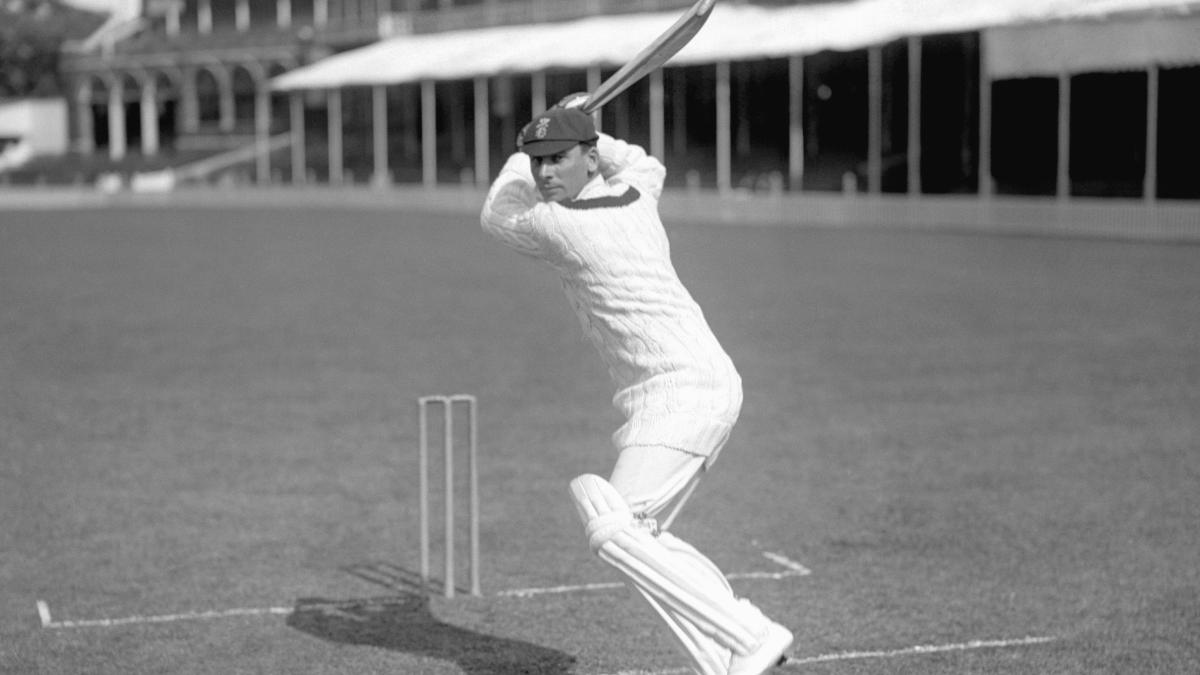
Jack Hobbs remains one of cricket’s most iconic figures, with a career that set standards in both domestic and international cricket.
His prolific run-scoring, consistent performance, and enduring influence on the game highlight his status as one of the sport’s all-time greats.
Jack Hobbs legacy is not just in the records he set, but also in the example he provided for future generations of cricketers.
All You Need to Know about Jack Hobbs
Why is Jack Hobbs famous?
Jack Hobbs is famous for being one of the greatest cricketers of all time, known as “The Master” for his exceptional batting skills. He was one of the first batsmen to succeed against googly bowlers, adapting his technique to new styles of bowling early in his career. His partnerships, especially with Herbert Sutcliffe for England, set high standards for opening batsmen in Test cricket.
How many first-class centuries did Jack Hobbs score?
Jack Hobbs scored 197 first-class centuries during his career, making him one of the most prolific batsmen in cricket history.
Where did Jack Hobbs live?
Jack Hobbs was born and raised in Cambridge, England, and lived there in his early years. Later in life, he lived comfortably due to his earnings from cricket and commercial endorsements.
Who did Jack Hobbs play cricket for?
Jack Hobbs played cricket for Surrey from 1905 to 1934 and for the England national team in 61 Test matches between 1908 and 1930.
How tall was Jack Hobbs?
6 ft 3 in (1.91 m)
Where is Jack Hobbs buried?
Hove Cemetery. Hove. Brighton and Hove Unitary Authority. East Sussex. However, he died in 1963, a few months after his wife, and was knighted in 1953 for his services to cricket.



